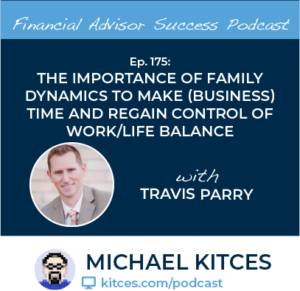Enjoy the current installment of "weekend reading for financial planners" – this week's edition kicks off with the news of a new show to debut this weekend on CNBC that will feature not stock-picking entertainment but actual financial planning advice from real financial advisors (featuring advisor and media personality Josh Brown) in what may be the most visible attempt yet to burnish the public image of what it means to be a "financial advisor" away from existing negative portrayals like Wolf of Wall Street and Ozark.
Also in the news this week is an update to the SEC's Frequently Asked Questions guidance on Regulation Best Interest reaffirming that standalone broker-dealers will be required to stop using the "advisor" title after June 30th (though dually-registered broker-dealer/RIAs will still be permitted to do so, even when acting as a broker and not an RIA), registration is opening for a new online version of FINRA and NASAA Series 6, 7, 63, and 65 exams as Prometric testing centers look to stay closed for at least several more weeks in many areas (while the CFP Board has announced that the July CFP exam is being delayed to September to allow more time for in-person testing centers to open where the more comprehensive exam can be effectively proctored), a recent Fidelity study finds advisors are buying more active than passive funds in the midst of the current market volatility (though it may simply be because advisors who use active funds are more likely to actively manage them in the first place), FPA launches a "Virtual Externship" program for college students to get up to 160 hours of CFP experience if their prior in-person internships were cancelled, and a new study finds that it's the frequency of advisor-client interactions and the transparency of the advisor's compensation that drives perceived value from clients (more so than just "how much" the advisor charges and whether it's more or less than what other advisors charge).
From there, we have several articles around client communication and relationship-building, including a look at how therapists are adapting to a more virtual environment with their patients (with some lessons for financial advisors communicating with clients), how to be more mindful of whether what you're saying to clients is really empathetic or not (hint: any sentence that starts with "at least... [it isn't worse]" isn't actually very empathetic), and a reminder that it's almost impossible to really know what others are going through so even when they share their troubles it's a good idea to pause and say "tell me more about that" before just trying to (empathetically) respond without necessarily understanding what their true concern actually is.
We wrap up with three interesting articles, all around the theme of how businesses and their employees can and are continuing to adapt to the work-from-home environment and the potential of returning back to the office in the coming month: the first explores how a renewed focus on employee safety (from the potential transmission of the coronavirus) may force offices to shift away from the open-office trend and back towards cubicles (with barriers to support social distancing!); the second provides some helpful tips on apps and tools to use to be more productive in a work-from-home environment; and the last provides a helpful reminder for anyone in a position of leadership about how to communicate more productively with employees in an era when virtual workplaces necessitate a more proactive communication approach.
Enjoy the 'light' reading!









